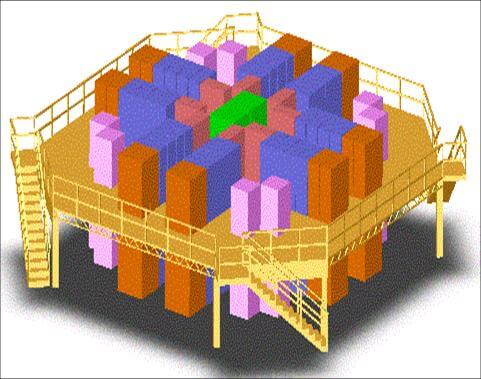University of Illinois at Chicago and Center for Genomic Analysis in Norwich, UK, accelerate drug discovery and analyzes of complex problems with SGI HPC computers

Researchers at the Center for Medicinal Biotechnology at UIC are working on the development of new therapeutics targeted at infectious diseases, with the help of HPC computers (high performance computers) or what until recently were called supercomputers, from the SGI company.
The discovery of innovative chemical components that form the basis for the development of molecular structures of new antimicrobials is an arduous task.
"Researchers at the center have been using SGI IRIX OS-based clusters for the past decade, and have now moved to an SGI UV high-performance computing solution powered by large arrays of Intel Xeon processors and NVIDIA Tesla graphics processing units (GPUs)," said Michael Johnson, professor and director emeritus. at the Center for Pharmaceutical Biotechnology at UIC. "These clusters provide computing flexibility in managing serial and parallel calculations, and the forward compatibility of SGI systems has allowed us to transparently develop and expand our computing power over the years, and to meet the increasing complexity of the problems we need to address."
In the UK, the Center for Genomic Analysis (TGAC) specializes in genomics and bioinformatics, with a focus on the analysis and interpretation of plant, animal and microbial genomes.
Launched in 2009, the TGAC team has grown to more than 50 members, with half of the institution's staff working with bioinformatics capabilities to interpret, assemble and analyze datasets generated from sequences stored in their laboratory.
Paul Partar, director of the scientific computing team at the Center for Genomic Analysis explains: "The main advantage of using such a system is the ability to assemble and analyze very large and complex genomic sequences, with a billion sequences in memory."
"The SGI UV family is quickly becoming the industry's de facto standard for customers facing some of the world's most complex Big Data challenges in the life sciences," says Israel Weinman, director of SGI operations in Israel. "It is the diversity, flexibility and scalability of the UV system that made the system a perfect computing and storage solution for these data-rich challenges."

One response
Maybe someone can compare the ability of the old Israeli compugene company and this technology, or present material about the Israeli company.